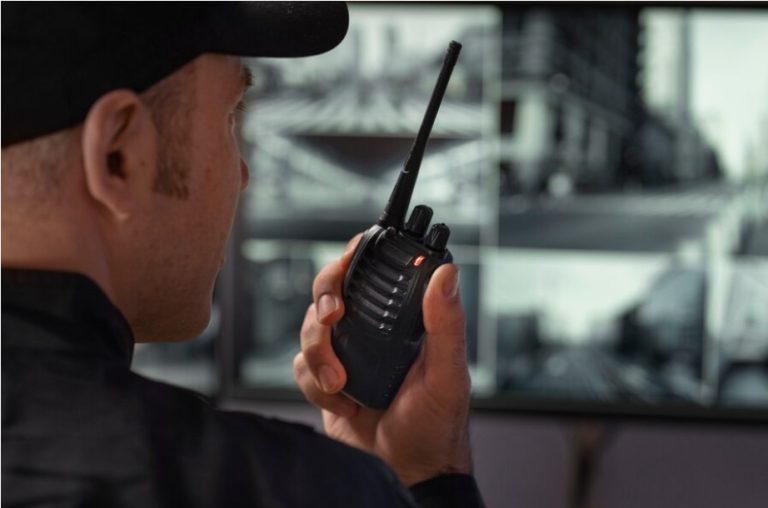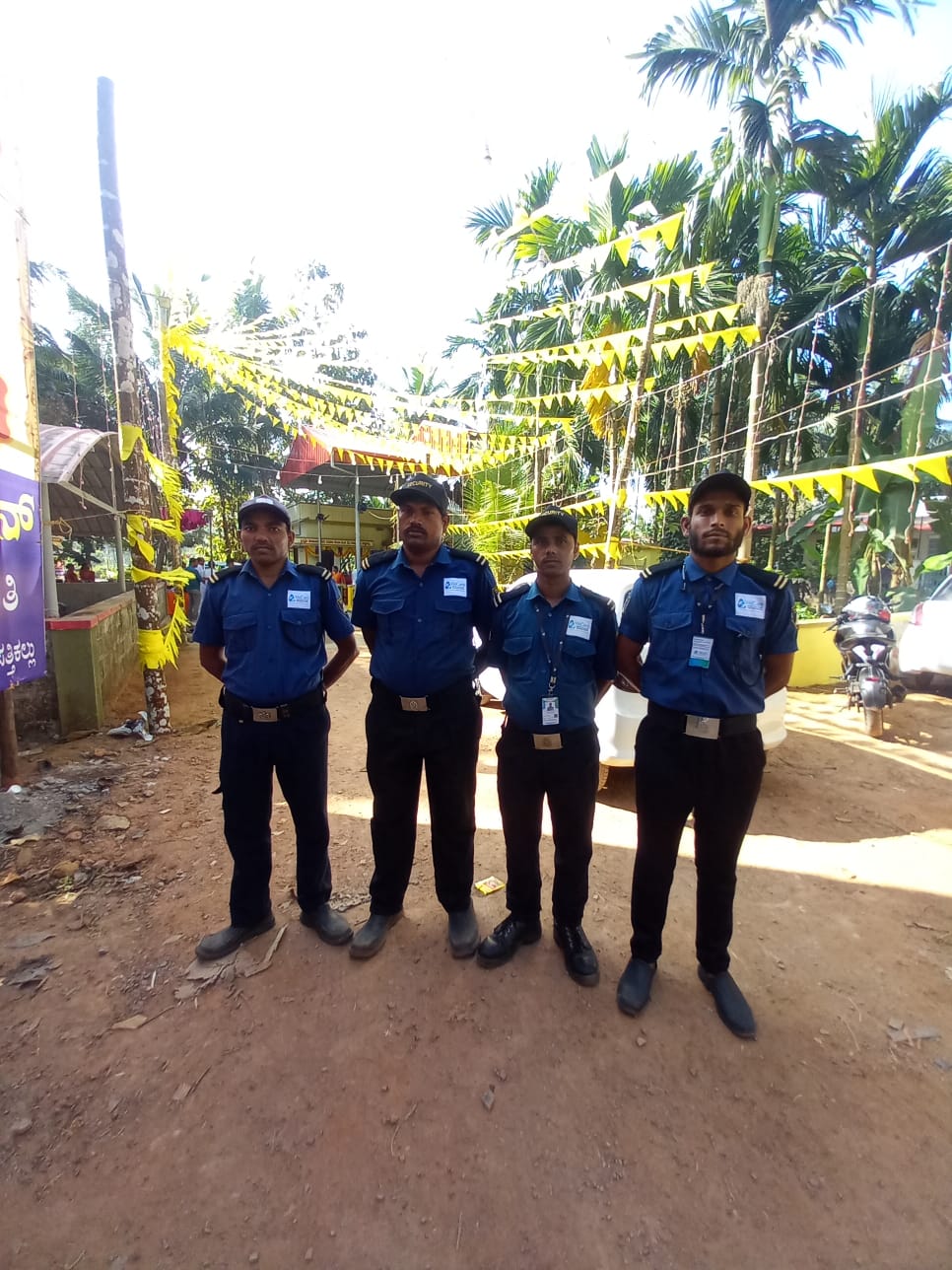Introduction
Consideration of Security is essential for companies of all kinds and sectors. A company’s ability to operate smoothly and uphold its reputation depends on its ability to protect its resources, personnel, clients, and private information. By putting in place strong security measures, businesses may avoid theft, vandalism, unauthorized access, and other security lapses that could negatively affect their operations and bottom line. Businesses looking for security professionals can choose between armed and unarmed guards. Security experts with the legal authority to carry firearms and other deadly weapons while doing their responsibilities are known as armed guards. They get specialized training in crisis management, self-defense, and handling weaponry.
This blog’s objective is to give companies the knowledge and perspectives they need to choose the security guards that will best meet their unique requirements. Businesses may evaluate their security needs and choose the choice of armed and unarmed guards that best fit their objectives, Budget, industry, and particular situation by knowing the benefits and downsides of both armed and unarmed guards. The goal is to enable companies to put in place the best security measures to safeguard their resources, personnel, and clients efficiently.
Understanding Security Guards

People who work as armed and unarmed guards are hired to keep people, property, and assets safe from dangers and threats. They are essential to preserving a secure atmosphere for both people and enterprises. In addition to patrolling the area and responding to crises and occurrences, wecare security guards are in charge of keeping an eye on surveillance equipment and preventing unwanted entrance. Depending on the particular requirements of the company, government security professionals may have different roles and responsibilities. Nonetheless, a few typical essential duties are as follows:
- Access Control: Security personnel are in charge of limiting access to a building’s restricted sections. They make sure that only people with permission are permitted in by examining identity and validating credentials.
- Government-registered security agency personnel are trained to keep an eye on surveillance systems, such as access control, CCTV cameras, and alarms. They monitor operations closely, pick up on questionable activity, and act quickly to neutralize any risks.
- Patrolling: One of a security guard’s primary responsibilities is routine patrolling. They patrol a property on a regular basis to spot security flaws, discourage illegal activity, and maintain a visible presence of law enforcement.
- Armed and unarmed guards are taught to react swiftly and efficiently to a variety of events, including fires, medical crises, and security breaches. They could take the required precautions to reduce dangers, cooperate with emergency services, and administer first aid.
- Customer service: Security officers frequently operate as the initial point of contact for clients, staff, and visitors in addition to their security responsibilities. They offer guidance and support and uphold a polite and friendly manner.
Customizing Security Measures to the Type of Business is Crucial
Every company has different security needs depending on its size, location, industry, and possible threats. Customizing security measures to these particular requirements is crucial. When deciding between armed and unarmed Security, companies should consider things like:
- Level of Threat: Evaluate the business’s exposure to possible risks and threats. To dissuade and respond to attacks, armed guards may be better for businesses in high-crime areas or with valuable assets.
- Customers, employees, and stakeholders’ views on armed guards. Having armed guards may make people feel safer or more nervous.
- Budget Considerations: Armed guards earn more owing to their training and duties. Assess the security budget and decide if armed guards or unarmed guards can meet security demands.
- Legal Implications: Review local armed guard laws. Some areas regulate armed security staff licensing, training, and liability.
Armed Guards: The Pros and Cons

In certain businesses, armed guards boost Security. They can prevent and strengthen security responses by their presence and firepower. Before hiring armed guards, weigh the pros and downsides. Armed and unarmed guards can carry firearms and other dangerous weapons. They receive guns, self-defense, and crisis management training to respond to threats. These guards work in high-security locations to secure valuable items, deter crime, or defend key infrastructure. Their major job is to keep the environment safe and respond quickly to security problems.
Armed Guard Services Benefit Businesses
- High-end goods and assets
Art galleries, museums, and high-end retail establishments benefit from armed guards. Armed Security can deter robbery and damage by displaying their capabilities.
- Financial institutions, jewelry stores
Financial institutions and jewelry stores manage significant sums of cash, precious metals, and other valuables. Armed robberies and heists are more likely in these businesses. Armed guards discourage such crimes and can quickly defend employees, customers, and assets.
- Protecting Critical Infrastructure
To prevent terrorist attacks and sabotage, critical infrastructure, including power plants, transit hubs, and government sites, needs strong protection. These institutions are generally guarded by armed guards who are trained and equipped to handle security breaches.
Armed Guard Benefits
- Factor deters
The presence of armed guards alone can dissuade criminals. Knowing that trained security professionals are armed and ready to use force might deter criminals and violent offenders.
- Improved Response
Armed guards can better handle urgent threats. Armed guards can neutralize threats and reduce property damage in emergencies. They can handle high-pressure situations thanks to their guns and crisis management training.
Cons and Considerations
- Possible Violence Escalation
The employment of armed guards may escalate conflict. Guns may escalate confrontations, especially if people are armed. Before hiring armed guards, employers must examine the implications of safety and liability.
- Cost implications
Higher training, licensing, and insurance expenses make armed guards more expensive than unarmed guards. The Budget must include guns, ammo, and training. Armed protection may be too expensive for smaller enterprises. Armed guards should be hired after a thorough assessment of a business’s needs and hazards. Armed guards improve Security and reaction, but they also increase expenses and danger of escalation. Businesses with high-value assets or high-risk situations may need armed guards. Before choosing, assess the pros and downsides and consider other security measures. The purpose is to protect employees, customers, and assets while minimizing risks and liabilities.
Unarmed Guards: The Pros and Cons

Unarmed guards ensure Security and safety in diverse contexts. They offer advantages over armed guards that make them ideal for some enterprises and circumstances despite their lower firepower. Unarmed security officers or guards safeguard people, property, and assets without firearms or other dangerous weapons. Many corporations and institutions use them to secure the environment. Conflict resolution, observation, access control, and customer service are common training areas for unarmed guards. Communication, monitoring, and presence help them maintain order and respond to security issues.
Unarmed Guard Benefits Businesses
- Shops and malls
Stores and shopping centers use unarmed guards to discourage theft, vandalism, and other crimes. To prevent criminals, unarmed guards might patrol, watch surveillance, and be visible. Their kind demeanor lets them help consumers, answer inquiries, and give directions, improving the shopping experience.
- Office Buildings
Office buildings store sensitive data, equipment, and secret information. Unarmed guards can monitor visitor admittance, regulate access, and protect staff and guests. Their presence keeps unauthorized people out of restricted areas and gives building workers protection. Unarmed guards can also coordinate with emergency services and guide inhabitants to safety during fire alarms or medical emergencies.
- Educational Institutions
Schools, colleges, and universities use unarmed guards to protect students, instructors, and staff. An unarmed guard can manage campus access, monitor entries, and exits, and respond to fights or disturbances. They may enforce school regulations and work with local police as needed.
Advantages of Unarmed Guards
- Customer Service and Approachability
The approachability and customer service of unarmed guards is a major benefits. Questions and concerns are simpler to ask in their non-threatening company. Visitors and staff may get directions, help with lost things, and more from unarmed guards. They make visitors feel welcome and improve their experience.
- Cheaper than Armed Guards
Compared to armed guards, unarmed guards are generally cheaper. Businesses save money by not having weapons training and licensing needs. This pricing lets enterprises with limited budgets use expert security services.
Cons and Considerations
- Limited High-Threat Response Capabilities
Unarmed guards’ inadequate responsiveness in high-threat circumstances is a major downside. Armed criminals or threats may be difficult to handle without guns. Their main role is to observe, report, and seek law enforcement intervention to ensure individual safety. Unarmed guards are trained in de-escalation, emergency response, and communication to handle dangerous situations until law enforcement arrives.
- Potential Problems Deterring Heavily Armed Threats
Unarmed guards can discourage many crimes, but motivated and highly armed people or groups may be harder to dissuade. Without guns, they may be unable to neutralize an imminent threat immediately. Businesses may consider adding surveillance cameras, panic buttons, and alarm systems for unarmed guards to inform law enforcement and improve Security. Armed or unarmed guards depend on a business’s demands and conditions. Unarmed guards succeed in environments that value their approachability, customer service, and cost-effectiveness. These are ideal for retail, commercial, and educational facilities. However, a corporation must examine its risks and weaknesses and consider extra security measures to compensate for unarmed guards’ shortcomings in high-threat scenarios. In the end, a thorough security plan that fits the organization and its needs will keep everyone safe.
Assessing Your Business Needs
- Conducting a security risk assessment
Businesses should do a security risk assessment before hiring armed or unarmed guards. This evaluation identifies industry, region, and operation-specific threats, vulnerabilities, and hazards. Businesses may better understand their security needs and make educated decisions by analyzing current security measures and finding areas for improvement.
- Assessing business nature and threats
Business type affects security guard needs. Jewelry stores and financial institutions may be more vulnerable to targeted assaults or robberies, making armed and unarmed guards a good alternative. However, office buildings and retail outlets may be safe with unarmed Security.
- Security advisor consultation
Professional security advisors may help businesses understand their security demands. These security risk experts can personalize advice to the business’s needs. Their experience can uncover security holes and help firms make educated decisions.
- Law and regulation
Companies must consider security staff laws and regulations. PSARA license holder, training, and insurance for armed guards vary by jurisdiction. Understanding and following these regulations is essential to prevent legal complications and liabilities.
Any queries about security service ?
Decision Making while choosing armed and unarmed guards
- Advantages and downsides based on business needs
Businesses should carefully examine the merits and downsides of armed and unarmed guards based on their security needs. Consider prospective threats, high-value assets, deterrents, and security incident response. This evaluation will assist in choosing a security guard for the business.
- Budget and efficiency
Budget matters while making a decision. Armed guards cost more to train, license, and insure. Businesses should consider their budgets and whether armed guards are cost-effective. Some firms may find it more cost-effective to invest in Security or technology.
- Long-term planning, scaling
When choosing Bodyguards, firms should consider long-term planning and scalability. As the firm grows or diversifies, will security demands change? A security solution that grows with the organization is crucial. This may require choosing a multi-service security provider or negotiating flexibility with possible security partners.
- Communicating clearly with the security provider
Clear contact with the security supplier is essential after the choice. Clarify the business’s expectations, requirements, and operational specifics. Regular contact and input with the security supplier will assist in guaranteeing that security measures meet the business’s demands and can be adjusted quickly. Reviewing a business’s security needs, considering dangers, talking with security specialists, and addressing legal requirements is crucial to choosing armed versus unarmed guards. Businesses may secure their assets, workers, and customers by analyzing the advantages and downsides, considering financial limits, long-term planning, and clear communication with the security provider.
Case Studies
We Care Protection and Services adopted armed or unarmed protection. An office building that hired armed and unarmed guards to monitor access control and assist employees increased employee safety and reduced security breaches. Security professionals should get rigorous background checks, regular training and assistance, and clear communication standards, according to the website. Businesses may protect their employees, customers, and assets by adopting these best practices.
Conclusion
In conclusion, risk, environment, and consumer perception determine whether to hire armed or unarmed security personnel. Security is not a one-size-fits-all solution, and organizations must adjust their strategy to their specific security needs. We Care Security, and Services understands the value of a customized security plan and offers a variety of services to meet client needs. Our professionals evaluate each client’s demands and provide a customized plan to handle their issues. Professional Security is essential for protecting assets, workers, and customers. Trust us to deliver the greatest degree of Security. Contact us now to discuss your security requirements and learn why Indian businesses choose us.


